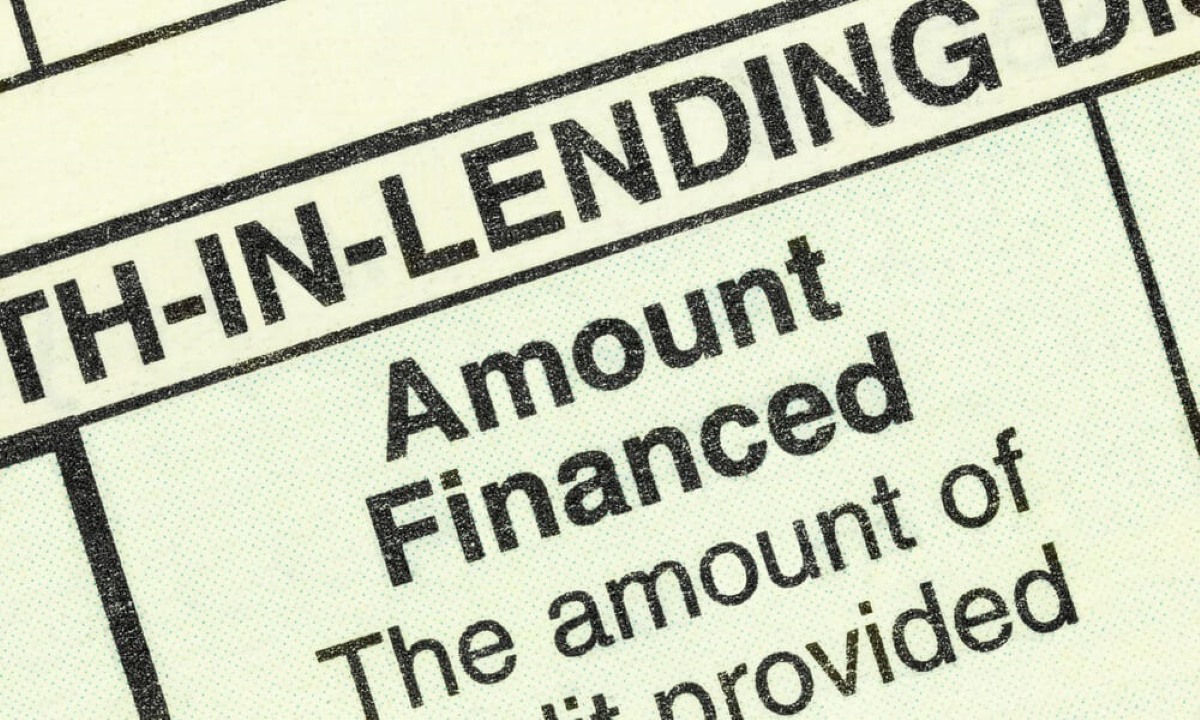

Finance
What Is The Grace Period On A CD?
Published: February 21, 2024
Learn about the grace period on a Certificate of Deposit (CD) and how it impacts your finances. Understand the implications of CD grace periods in managing your savings.
(Many of the links in this article redirect to a specific reviewed product. Your purchase of these products through affiliate links helps to generate commission for LiveWell, at no extra cost. Learn more)
Table of Contents
Introduction
Understanding the Grace Period on a Certificate of Deposit (CD)
When it comes to financial investments, a Certificate of Deposit (CD) is a popular choice for individuals seeking a secure and predictable way to grow their savings. CDs offer a fixed interest rate over a specific period, making them a low-risk option for those who prioritize stability in their investment portfolio. However, beyond the basic features of a CD, it's essential to understand the concept of the grace period associated with this financial instrument.
The grace period on a CD is a crucial component that can significantly impact an investor's experience and financial decisions. It serves as a safeguard, providing account holders with a window of flexibility and opportunity. By delving into the details of the grace period, investors can gain a deeper understanding of how this feature influences their investment strategy and financial well-being.
In this comprehensive guide, we will explore the intricacies of the grace period on a CD, shedding light on its significance, benefits, and practical implications. By unraveling the mysteries surrounding the grace period, investors can make informed choices and maximize the potential of their CD investments. Let's embark on a journey to uncover the nuances of the grace period and its impact on the world of certificate of deposits.
Understanding Certificate of Deposit (CD)
Before delving into the specifics of the grace period, it’s important to grasp the fundamental nature of a Certificate of Deposit (CD). A CD is a financial product offered by banks and credit unions, providing individuals with a secure means of saving money while earning a fixed interest rate over a predetermined period. Unlike traditional savings accounts, CDs require the account holder to deposit a specific amount of money for a set duration, ranging from a few months to several years.
One of the key attractions of CDs is their predictability and low-risk nature. The fixed interest rate ensures that account holders know exactly how much they will earn on their investment, offering a sense of stability in an ever-changing financial landscape. Additionally, CDs are typically insured by the Federal Deposit Insurance Corporation (FDIC) or the National Credit Union Administration (NCUA), providing an extra layer of security for investors.
Furthermore, CDs are available in various types, including traditional CDs, jumbo CDs (designed for larger deposits), and bump-up or step-up CDs (allowing for a one-time interest rate increase). These options cater to the diverse needs and preferences of investors, allowing them to tailor their CD investments according to their financial goals and risk tolerance.
Overall, a Certificate of Deposit serves as a valuable tool for individuals seeking a reliable and low-risk method of growing their savings. Its straightforward structure and guaranteed returns make it an appealing choice for those prioritizing capital preservation and steady growth. With this foundational understanding of CDs in place, we can now turn our attention to the concept of the grace period and its implications for CD investors.
What Is a Grace Period on a CD?
A grace period on a Certificate of Deposit (CD) refers to the window of time after the CD reaches maturity during which the account holder can make changes to the investment without incurring penalties. Essentially, it offers a brief period of flexibility, allowing investors to reassess their options and decide on the next steps for their funds. The duration of the grace period varies depending on the financial institution and the specific terms of the CD agreement.
During the grace period, CD holders have the opportunity to withdraw the funds without facing early withdrawal penalties or reinvest the money into another CD or financial instrument. This feature provides a degree of freedom and control, enabling investors to adapt to changing financial circumstances or take advantage of more favorable investment opportunities.
It’s important to note that the grace period typically begins on the maturity date of the CD, which marks the end of the initial term for which the funds were deposited. For example, if a CD has a term of 12 months, the grace period would commence on the 12th month after the account was opened. Understanding the specifics of the grace period is crucial for CD holders, as it empowers them to make well-informed decisions regarding their investments.
Furthermore, the grace period serves as a buffer for investors who may need time to consider their options or explore alternative investment avenues. This added flexibility can be particularly valuable in situations where market conditions or personal financial goals have evolved since the inception of the CD.
By comprehending the concept of the grace period and its implications, CD holders can leverage this feature to optimize their investment strategies and align their financial decisions with their long-term objectives. In the subsequent sections, we will delve deeper into the benefits of the grace period and examine how it functions in practical scenarios.
Benefits of a Grace Period
The grace period associated with a Certificate of Deposit (CD) offers several advantages that can significantly impact an investor’s financial strategy and decision-making process. Understanding these benefits is essential for CD holders seeking to maximize the potential of their investments and navigate the complexities of the financial landscape effectively.
Flexibility and Decision-Making: One of the primary benefits of the grace period is the flexibility it provides to CD holders. During this window of time, investors have the freedom to reassess their financial goals, evaluate market conditions, and make informed decisions regarding the future of their funds. Whether they choose to renew the CD, withdraw the funds, or explore alternative investment opportunities, the grace period empowers investors to adapt to changing circumstances without being rushed into a hasty decision.
Opportunity for Reinvestment: The grace period presents an opportunity for CD holders to explore reinvestment options without incurring penalties. This can be particularly advantageous if more favorable interest rates or investment products become available during the grace period. By leveraging this flexibility, investors can capitalize on evolving market conditions and optimize the returns on their funds.
Protection Against Unforeseen Events: In the event of unexpected financial needs or emergencies, the grace period acts as a safety net for CD holders. It provides a brief window during which investors can access their funds without facing early withdrawal penalties, offering a degree of financial security and peace of mind.
Strategic Financial Planning: The grace period facilitates strategic financial planning by allowing CD holders to align their investment decisions with their long-term objectives. Whether it involves rolling over the funds into a new CD, diversifying the investment portfolio, or utilizing the funds for specific financial goals, the grace period enables investors to make deliberate and well-informed choices.
Overall, the benefits of the grace period extend beyond mere flexibility, encompassing strategic advantages that can enhance the overall efficacy of an investor’s financial plan. By recognizing and leveraging these benefits, CD holders can harness the potential of the grace period to optimize their investment outcomes and achieve greater financial stability.
How Does the Grace Period Work?
The functioning of the grace period on a Certificate of Deposit (CD) is an integral aspect of understanding its practical implications for investors. To comprehend how the grace period operates, it is essential to consider its mechanics and the options available to CD holders during this period of flexibility.
When a CD reaches its maturity date, the grace period begins, typically lasting for a few days to a couple of weeks, depending on the terms outlined in the CD agreement. During this time, investors have the opportunity to take several courses of action without incurring penalties:
- Renewal: CD holders can choose to renew the CD for another term, allowing them to continue earning interest on their funds. This option provides a seamless transition for investors who wish to maintain the stability and predictability of their investment.
- Withdrawal: Investors have the freedom to withdraw some or all of the funds from the CD without facing early withdrawal penalties. This flexibility can be particularly valuable in situations where immediate liquidity is required or when alternative investment opportunities arise.
- Reinvestment: The grace period enables CD holders to reinvest the funds into a different CD or investment product, allowing them to capitalize on more favorable interest rates or adjust their investment strategy based on evolving financial circumstances.
It’s important for CD holders to be mindful of the specific terms and conditions associated with the grace period, as these may vary depending on the financial institution and the type of CD. Additionally, investors should consider the implications of their chosen course of action during the grace period, ensuring that it aligns with their financial goals and risk tolerance.
By understanding the mechanics of the grace period and the available options, CD holders can make well-informed decisions that optimize the potential of their investments and support their long-term financial objectives. In the subsequent section, we will delve into the importance of the grace period and its relevance in the broader context of financial planning and investment management.
Importance of the Grace Period
The grace period on a Certificate of Deposit (CD) holds significant importance in the realm of financial planning and investment management. Its role extends beyond providing a brief window of flexibility; rather, it serves as a strategic tool that empowers CD holders to make well-informed decisions and adapt to dynamic market conditions effectively.
Strategic Decision-Making: The grace period offers CD holders the opportunity to strategically reassess their investment choices. Whether it involves renewing the CD, withdrawing funds, or exploring reinvestment options, this period of flexibility allows investors to align their decisions with their current financial goals and prevailing market conditions.
Adaptability and Flexibility: In a rapidly changing financial landscape, the grace period provides a crucial element of adaptability. It enables investors to respond to unforeseen events, capitalize on emerging opportunities, and adjust their investment strategy without being constrained by rigid terms or penalties.
Financial Security and Peace of Mind: The grace period acts as a safeguard, offering CD holders a sense of financial security and peace of mind. In the event of unexpected financial needs or changes in personal circumstances, this feature provides a buffer that allows investors to access their funds without facing punitive measures.
Optimization of Returns: By leveraging the grace period to explore reinvestment options or capitalize on more favorable interest rates, CD holders can optimize the returns on their funds. This strategic approach to managing the grace period can enhance the overall efficacy of an investor’s portfolio and contribute to long-term financial growth.
Ultimately, the importance of the grace period lies in its ability to empower CD holders to make informed and strategic decisions that align with their financial objectives. By recognizing the significance of this feature and leveraging it effectively, investors can navigate the complexities of the financial landscape with confidence and maximize the potential of their CD investments.
Conclusion
As we conclude our exploration of the grace period on a Certificate of Deposit (CD), it becomes evident that this feature plays a pivotal role in shaping the experiences and decisions of CD holders. Beyond its temporal significance, the grace period embodies a strategic tool that empowers investors to adapt, optimize, and safeguard their financial assets effectively.
By understanding the nuances of the grace period, CD holders can capitalize on its benefits, leveraging flexibility, and strategic decision-making to align their investments with their long-term financial goals. Whether it involves renewing the CD, exploring reinvestment opportunities, or addressing unforeseen financial needs, the grace period offers a window of opportunity that enhances the overall efficacy of an investor’s financial plan.
Furthermore, the grace period serves as a testament to the dynamic nature of financial instruments, acknowledging the need for adaptability and responsiveness in an ever-evolving market environment. Its importance extends beyond mere convenience, encompassing strategic advantages that contribute to the resilience and optimization of an investor’s portfolio.
As investors navigate the intricacies of the financial landscape, the grace period stands as a valuable ally, providing a degree of control, protection, and opportunity. By embracing the potential of the grace period, CD holders can embark on a journey of informed decision-making and strategic wealth management, unlocking the full potential of their investments while mitigating risks and capitalizing on emerging opportunities.
In essence, the grace period on a CD transcends its temporal confines, embodying a philosophy of adaptability, empowerment, and strategic foresight. It symbolizes the intersection of stability and flexibility, offering investors a balance that is essential for navigating the complexities of the financial world with confidence and conviction.














